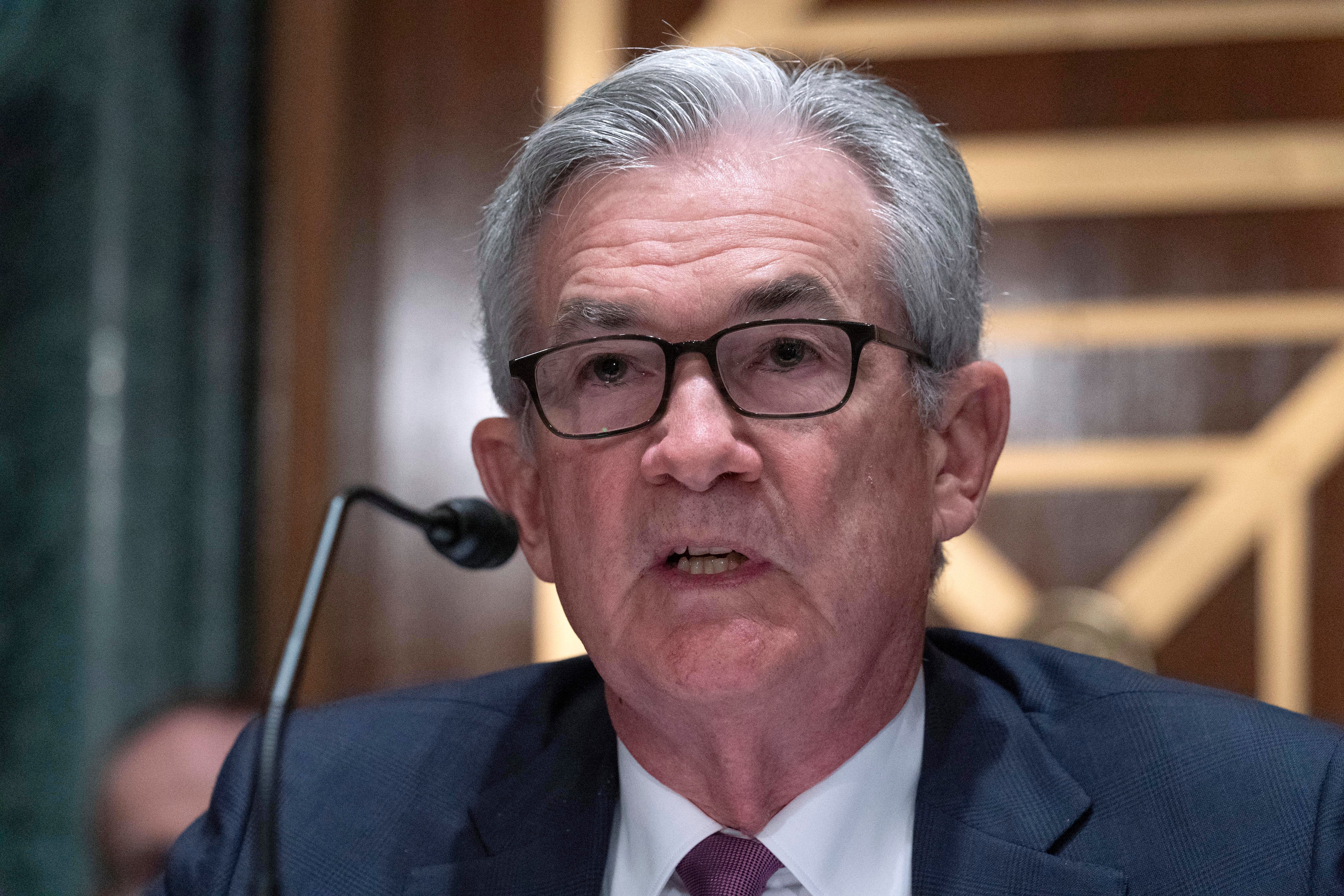Fed notes improving economy, a step toward easing support
The Federal Reserve said Wednesday that the economy is strengthening and making progress toward its employment and inflation goals, a small step closer to dialing back its ultra-low-interest rate policies

Your support helps us to tell the story
From reproductive rights to climate change to Big Tech, The Independent is on the ground when the story is developing. Whether it's investigating the financials of Elon Musk's pro-Trump PAC or producing our latest documentary, 'The A Word', which shines a light on the American women fighting for reproductive rights, we know how important it is to parse out the facts from the messaging.
At such a critical moment in US history, we need reporters on the ground. Your donation allows us to keep sending journalists to speak to both sides of the story.
The Independent is trusted by Americans across the entire political spectrum. And unlike many other quality news outlets, we choose not to lock Americans out of our reporting and analysis with paywalls. We believe quality journalism should be available to everyone, paid for by those who can afford it.
Your support makes all the difference.The Federal Reserve said Wednesday that the U.S. economy is strengthening and making progress on the Fed's employment and inflation goals, a small step toward dialing back its ultra-low-interest rate policies.
The statement the Fed issued after its latest policy meeting said that ongoing vaccinations were helping the economy. But it dropped a sentence it had included after its previous meeting that said those vaccinations have reduced the spread of COVID-19. That was the only reference to the delta variant that has caused a spike in COVID cases in several hotspots in the United States and many other countries.
The central bank said it’s keeping its benchmark short-term rate pegged at nearly zero, where it has remained since the pandemic tore through the economy in March 2020. The Fed is also buying $120 billion in Treasury and mortgage bonds each month — purchases that are intended to lower rates on longer-term consumer and business loans to spur more borrowing and spending.
The Fed’s latest policy statement comes as the economy is sustaining a strong recovery from the pandemic recession, with solid hiring and spending. But it also coincides with uncomfortably high inflation and concerns about the spread of the delta variant.
The economy's widespread improvement is a key reason why Chair Jerome Powell and other Fed policymakers are believed to be moving closer toward pulling back their economic support. Consumer prices also jumped 5.4% in June from a year ago, the biggest increase in 13 years. And a separate inflation gauge the Fed prefers has risen 3.9% in the past year.
Last month's inflation surge marked a fourth straight month of unexpectedly large price increases, heightening fears that higher costs will erode the value of recent pay raises and undermine the economic recovery.
The main concern is that the Fed will end up responding too late and too aggressively to high inflation by quickly jacking up interest rates and potentially causing another recession. Earlier this month, Republicans in Congress peppered Powell with questions about inflation.
After a period of broad agreement during the pandemic crisis, the Fed’s policymakers appear divided over how soon to start reducing — or “tapering,” in Fed parlance — the monthly bond purchases. Several regional Fed bank presidents support tapering soon, including James Bullard of the St. Louis Fed, Patrick Harker of the Philadelphia Fed and Robert Kaplan of the Dallas Fed.
But Powell has said that the central bank wants to see “substantial further progress” toward its goals of maximum employment and price stability before it would consider reducing the bond purchases. To make up for years of inflation remaining below 2%, the Fed wants inflation to moderately exceed its 2% average inflation target and to show signs of remaining above that level for an unspecified time.
In recent months, as consumer demand has exceeded the supply of goods and services in some industries, inflation — led by sharp price increases for things like used and new cars, hotel rooms and airline tickets —has topped 2%.
It’s not yet clear how the highly contagious and fast-spreading delta variant of the coronavirus might affect the U.S. or global economies or how the job market will fare in coming months. Hiring could accelerate in September as schools reopen, more parents are able to take jobs and expanded unemployment aid programs expire.
The bond market is signaling little concern about future inflation, with the yield on the 10-year Treasury note having fallen by nearly a half-percentage point since the spring, to about 1.26%. This also gives the Fed more time to consider its options.
Powell has said the Fed will communicate its intention to taper “well in advance” of doing so. Many economists think that signal will occur in late August or September.